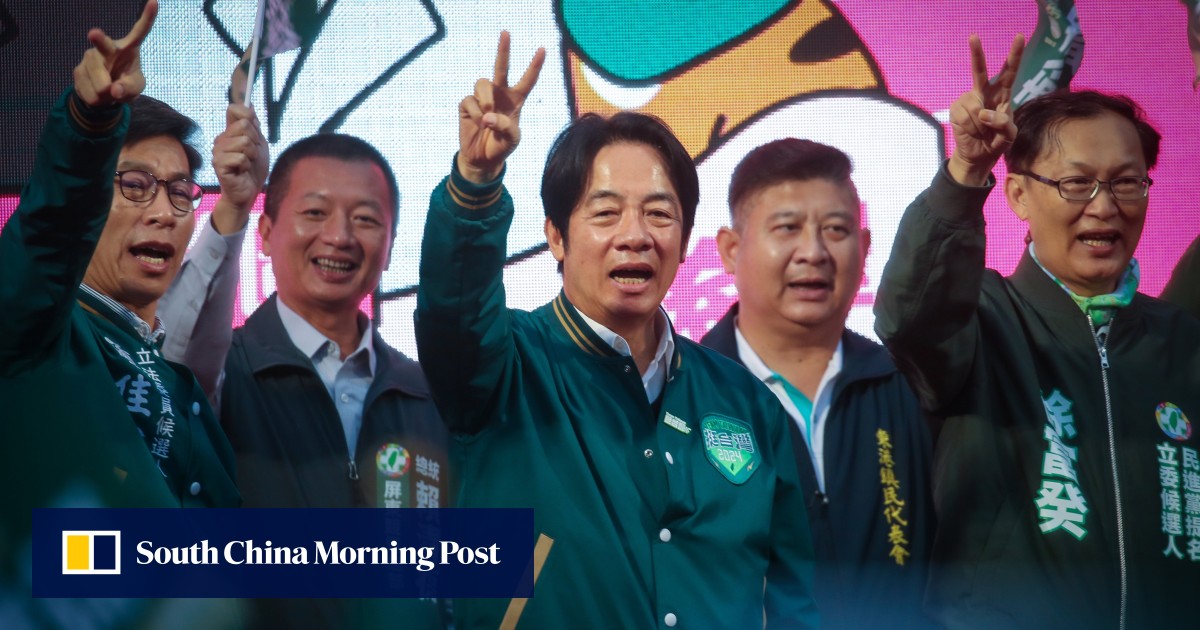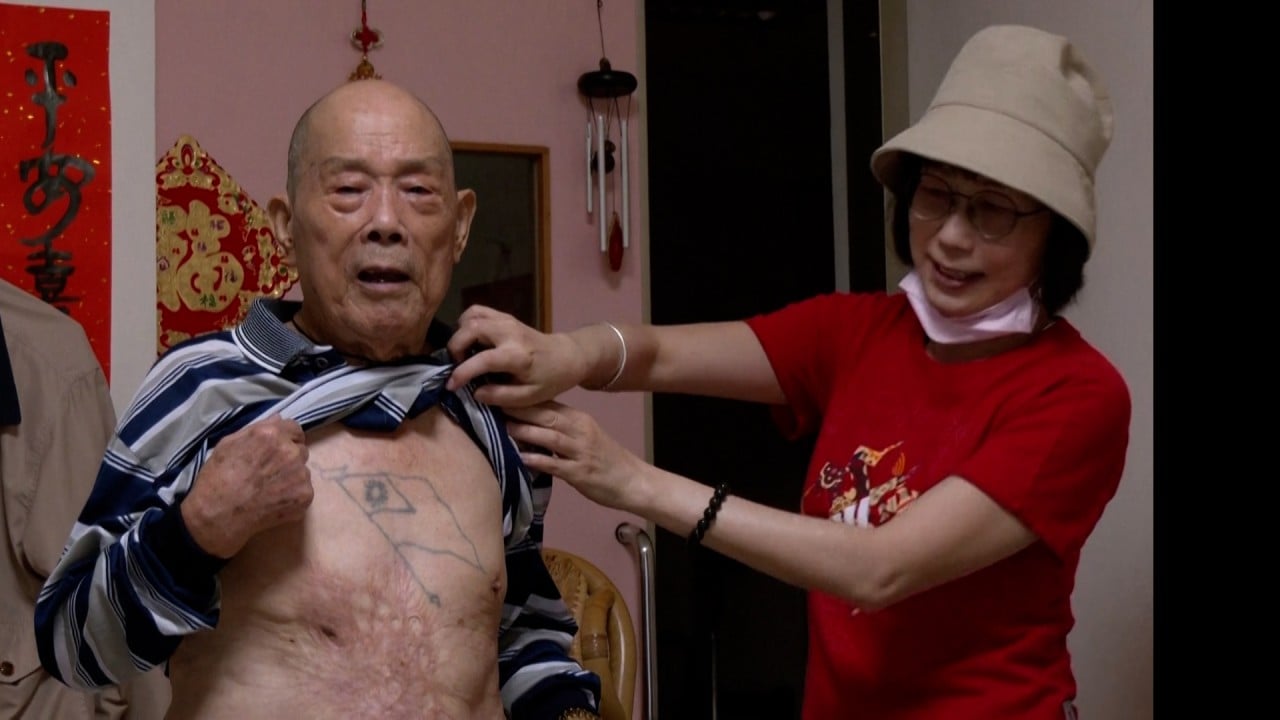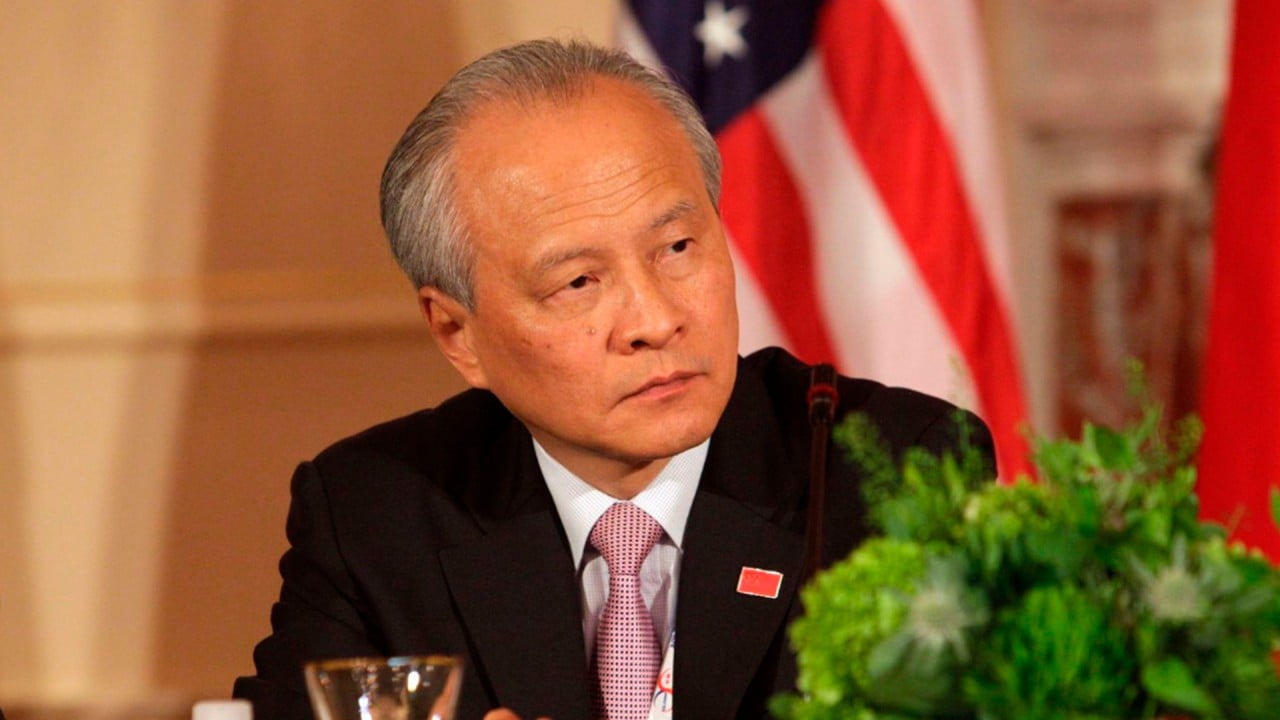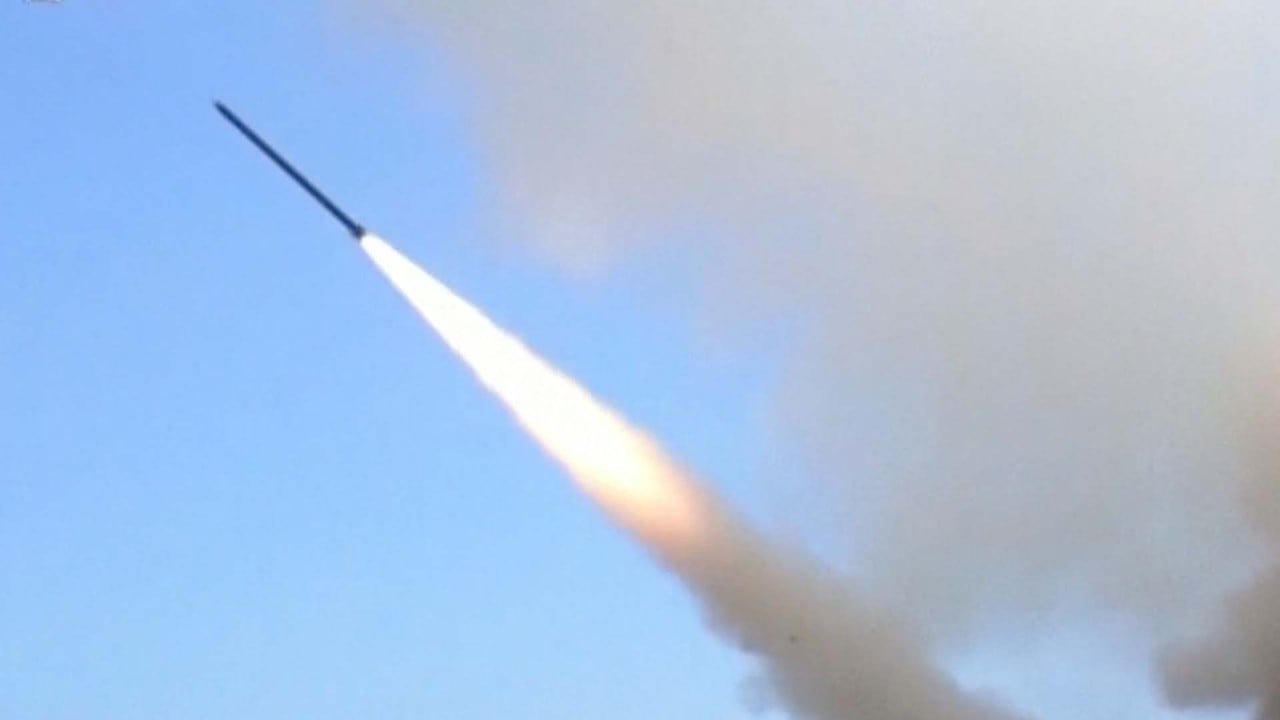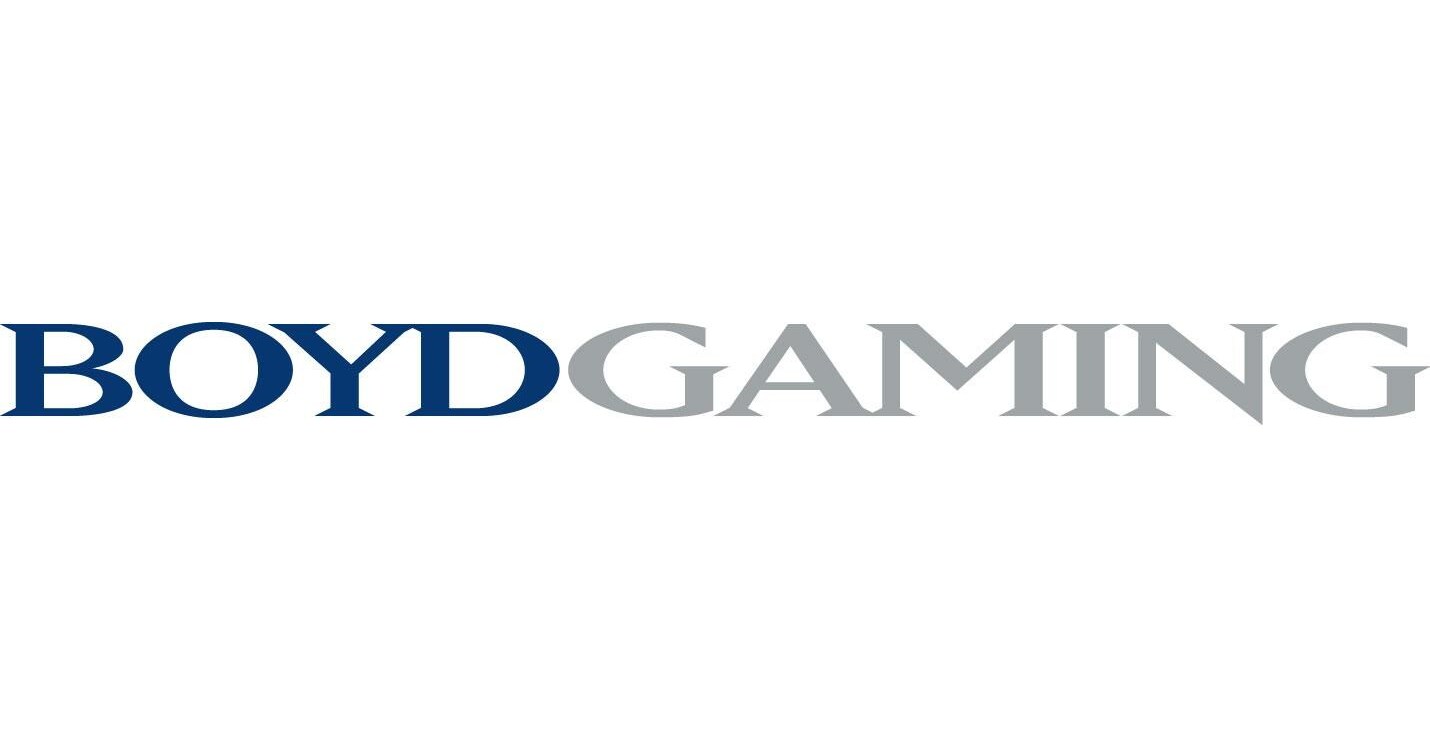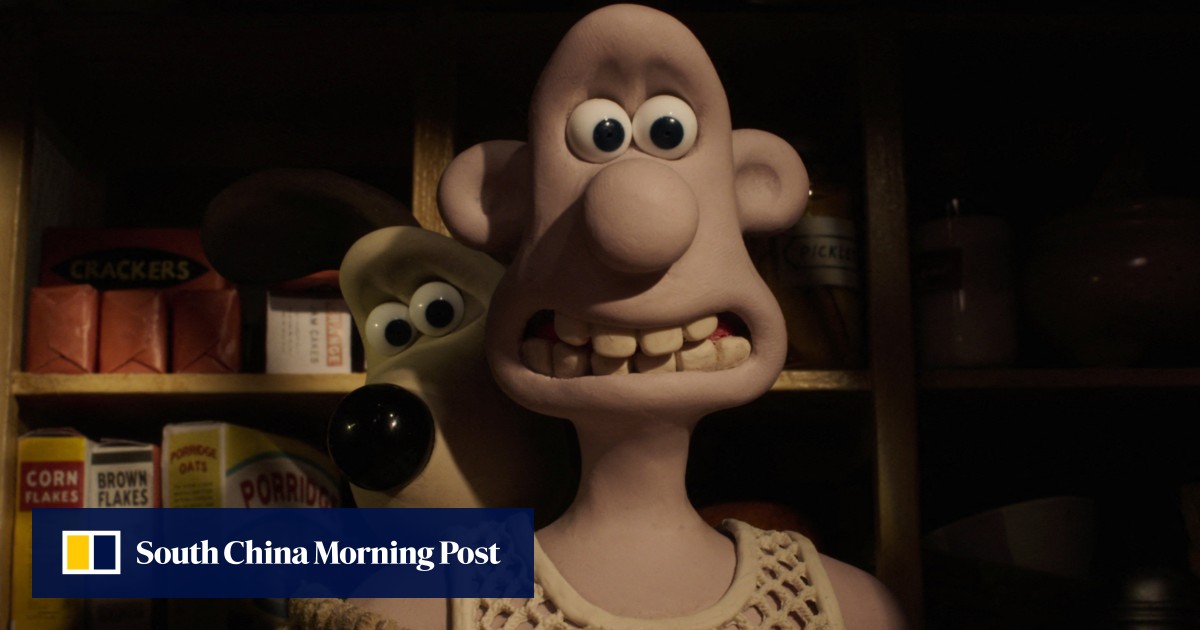“Are you willing to give up your advocacy of Taiwan independence? Mr Lai, you are the chairman of the [ruling] Democratic Progressive Party. Are you willing to abolish the [DPP’s] independence platform so that the public can … rest assured?” Hou said.
Hou said Lai’s assurances during the election campaign that he would not declare independence if elected were meant to “wangle votes” from the public.
“Taiwan independence would lead to war,” Hou said, adding that he did not support such a stand and that he would do all he could to uphold cross-strait peace and stability.
Taiwan poll: DPP senses win with Lai-Hsiao ticket but Beijing might see ‘war’
Taiwan poll: DPP senses win with Lai-Hsiao ticket but Beijing might see ‘war’
Lai has a history of advocating for the island’s independence, calling for it several times as mayor of the southern city of Tainan from 2010-17. He also described himself as a “pragmatic worker for Taiwan independence” when he served as premier in 2017.
In an interview with Bloomberg in August, Lai echoed outgoing President Tsai Ing-wen, saying there is no need to declare independence as the island “is already a sovereign, independent country called the Republic of China (ROC)”.
Beijing, which views Taiwan as a wayward province that must be brought under mainland control, by force if necessary, has repeatedly warned that an official split would lead to an attack.
Hou stressed that if elected he would adhere to the ROC constitution, which enshrines the one-China concept, underlining it as the “sacred mountain” to safeguard peace across the Taiwan Strait.
The principle – which agrees there is one China but leaves room for interpretation – would steer clear of any misunderstanding that Taiwan is independent from the mainland, he said.
Lai responded by attacking Hou for accepting “Beijing’s one-China principle” as well as the “one country, two systems” model applied to Hong Kong, which he said would “leave no more survival room for the ROC”.
Lai also took a swipe at Ko Wen-je – running for the smaller Taiwan People’s Party – for accepting the one-China principle by acknowledging that “Taiwan and the mainland are one family”.
“Mayor Hou and Chairman Ko, do you think by accepting the one-China principle … and placating China, we would be able to win the peace?” he said, adding it had long been Beijing’s policy to “swallow up Taiwan”, regardless of what the island’s political parties advocated.
In the eyes of Beijing, “all three of us who are running for president are advocates of Taiwan independence”, Lai said.
Beijing urged to be ‘realistic’ and talk to Taiwan’s ruling DPP
Beijing urged to be ‘realistic’ and talk to Taiwan’s ruling DPP
Cross-strait relations turned sour in 2016 when Tsai was elected president and refused to accept the one-China principle. Beijing suspended dialogues and exchanges while anti-mainland sentiment on the island has grown.
Most opinion surveys show the majority of Taiwanese no longer identify as Chinese and do not embrace the prospect of cross-strait unification.
“Peace is precious and war has no winner,” Lai said. “Under the principle of parity, I am willing to open the door of exchanges and cooperation with China to improve the public well-being and achieve cross-strait peace and prosperity.”
Ko touted the “five mutual principles” – recognition, understanding, respect, cooperation, and consideration of each other’s interests – as his preferred approach to managing cross-strait relations.
“As long as we have mutual understanding, we will be able to find an alternative acceptable to all of us,” he said.
Like his opponents, Ko said he attaches importance to forming a “credible deterrence” by increasing Taiwan’s defence budget to 3 per cent of the GDP. In safeguarding peace, no one should rest his hopes “on the goodwill of others”.
Ko said communication between the two sides was necessary to ease hostility and reduce the chances of unintended incidents, while a “reliable defence force” could help Taiwan “to be able to talk with others with parity and dignity”.
Away from cross-strait policy, the three candidates also traded barbs over who could offer the best solutions to high housing prices, the gap between poor and rich, unfair taxation, corruption, power shortages and other domestic issues.
Observers said it was inevitable that cross-strait issues have dominated the presidential election, given the growing hostility and escalating tensions between Taiwan and the mainland.
Beijing has intensified its military threats against Taiwan since Nancy Pelosi, then US House speaker, visited Taipei in August last year – seen by Beijing as a violation of its sovereignty and a breach of Washington’s one-China policy.
Like most countries, the US – Taiwan’s informal ally and biggest arms supplier – does not recognise the island as an independent state but Washington is opposed to any unilateral change to the status quo.
“With Taiwan being seen as one of the world’s most dangerous flashpoints for conflict, the candidates’ policies in dealing with mainland China naturally would come under scrutiny,” said Wang Kung-yi, head of the Taiwan International Strategic Study Society think tank.
“If those policies are not handled properly, they could bring the risk of war to Taiwan,” Wang said. This explained why all three candidates wanted to emphasise that they could manage cross-strait ties and maintain peace with Beijing, he added.
Kuo Yu-jen, professor of China and Asia-Pacific studies at National Sun Yat-sen University in Kaohsiung, southern Taiwan, noted that the contenders agreed the island should strengthen its defensive capabilities, while vowing to maintain the status quo.
“Although Beijing does not want the DPP to remain in power, it might not necessarily find the KMT ticket more reassuring,” he said, pointing out that both Hou and his running mate Jaw Shau-kong have pledged to maintain a credible deterrence in the face of growing threats from Beijing.
Lai remains the front runner, with Hou and Ko in second and third place respectively in the race, which will be held alongside the island’s legislative elections.

